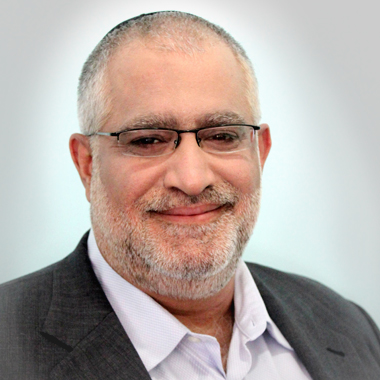
When you create a home, any home, it is just an empty space. When you start to live and breathe in this home, it becomes filled with your energy. This is the reason that sometimes, when people walk into a strange place, they feel something right away. I am sure that you have felt it too; you walk into a house for the very first time and somehow you feel, for example, welcome or unwelcome. Not by the people, but by the energy of the house. You can feel what kinds of things have happened inside this house; where it is “cold” or “warm”, where it is receptive or not.
This is what Moses did for the tabernacle in the seven days prior to activating it to be used by the high priest – Aaron – as the access point to the Light of the Creator. Not just for the Israelites in the Sinai desert, but for all of humanity. Moses was bringing down the essence of the life force of the Creator to each and every detail and aspect of the Mishkan – the tabernacle – to be sanctified by Aaron on the eighth day – Shmini, the name of this week’s portion.
From the behavior of Aaron the high priest, we can learn a deeper lesson.
In the biblical story it says that Moses said to Aaron: “Go unto the altar, and offer thy...” (Leviticus 9:7). The question is, why didn’t Aaron just do “his job”, as he was the only high priest. In his book, Noam Elimelech, the great kabbalist Rav Elimelech of Lizansk quotes another great kabbalist and commentator, Rashi, with the following: “Aaron was too ashamed and full of awe to go in and assume the position of the high priest. Until Moses said to him, ‘Why are you assuming? For this, you were chosen.’”
Rav Elimelech adds that this is exactly what made Aaron the only one of the Israelites suitable for the job – he didn’t think he was good enough to do it. Actually, if one could have conducted a survey between all the Israelites and asked: “On a scale of 0-10, how well do you think you can do the job of the high priest?” – Aaron would probably have answered with a zero. Rav Elimelech says that the righteous always have their mistakes and selfish actions in front of their eyes, which reminds them how far they are from the Creator and therefore not deserving to take the lead.
But wait a minute, doesn’t Kabbalah teach that the Light wants to give us everything? Aren’t we deserving of having everything? Didn’t Aaron know this?
What a contradiction – seemingly.
So when is it that I deserve to have, and when do I not? Who is to say what I deserve?
Aaron had real humility. Aaron would see the good in all the rest of the people; their great attributes and the Light inside of them. He would look at himself and see how much he needed to change to be the best version of himself.
And this is the deeper aspect of Karen’s words. We need to “sanctify” ourselves like Moses did, to prepare ourselves for the greatness the Light wants to give us. But the only way for us to receive it is to be like Aaron; to see any person around us as better than us and deserving of this greatness.
So what is my cue to accept what is given to me? How do I know?
We can learn it from a short story from our recent lineage.
Rav Brandwein was the teacher of Rav Berg, our beloved teacher of blessed memory and Spiritual Director of The Kabbalah Centre. When Rav Brandwein was a student of Rav Ashlag (the founder of the Centre), after many years of Kabbalah studies he was fired from his day job. He asked Rav Ashlag if perhaps he could become a teacher and make his living by spreading Kabbalah. Rav Ashlag said to him, “Not yet, maybe try to find yourself another job.” A few days later, Rav Brandwein came to his teacher and said happily, “I found a job: I will be a garbage collector.” Rav Ashlag replied, “Now you can be a Kabbalah teacher.”
The humility Rav Brandwein’s job gave him, allowed him to be a great channel of Light. We have an opportunity this week to sanctify the Light within each of us, just like Aaron. Recognize the Light in everyone around us. Live each day with humility and without entitlement.

